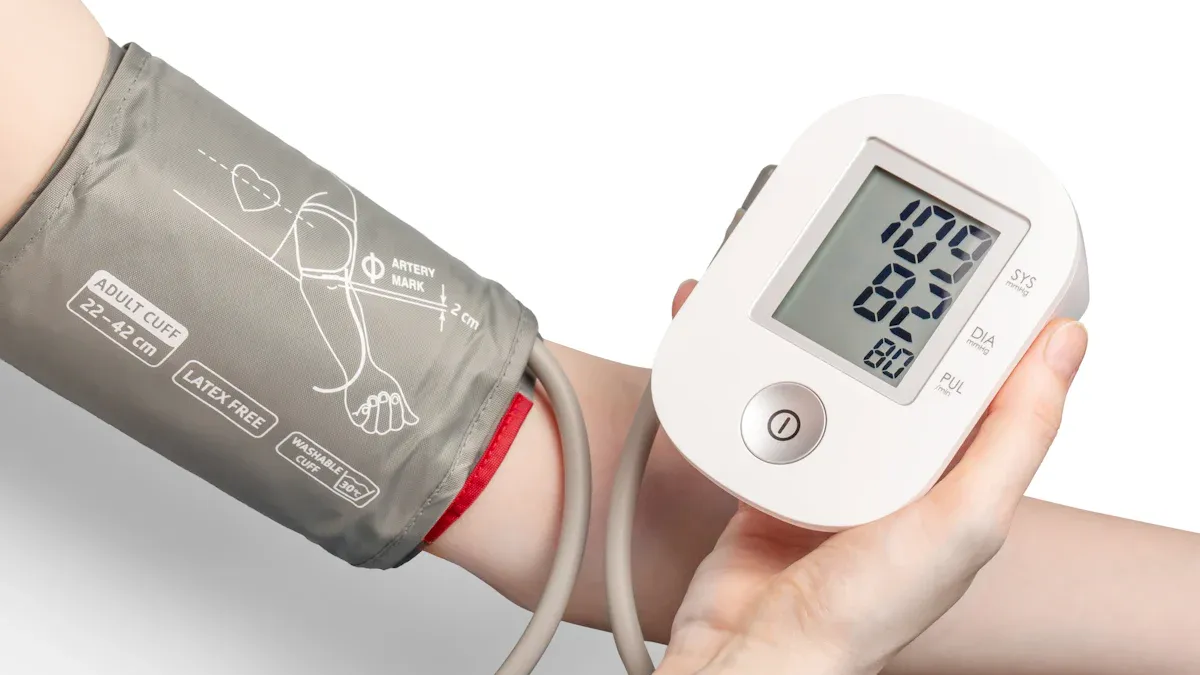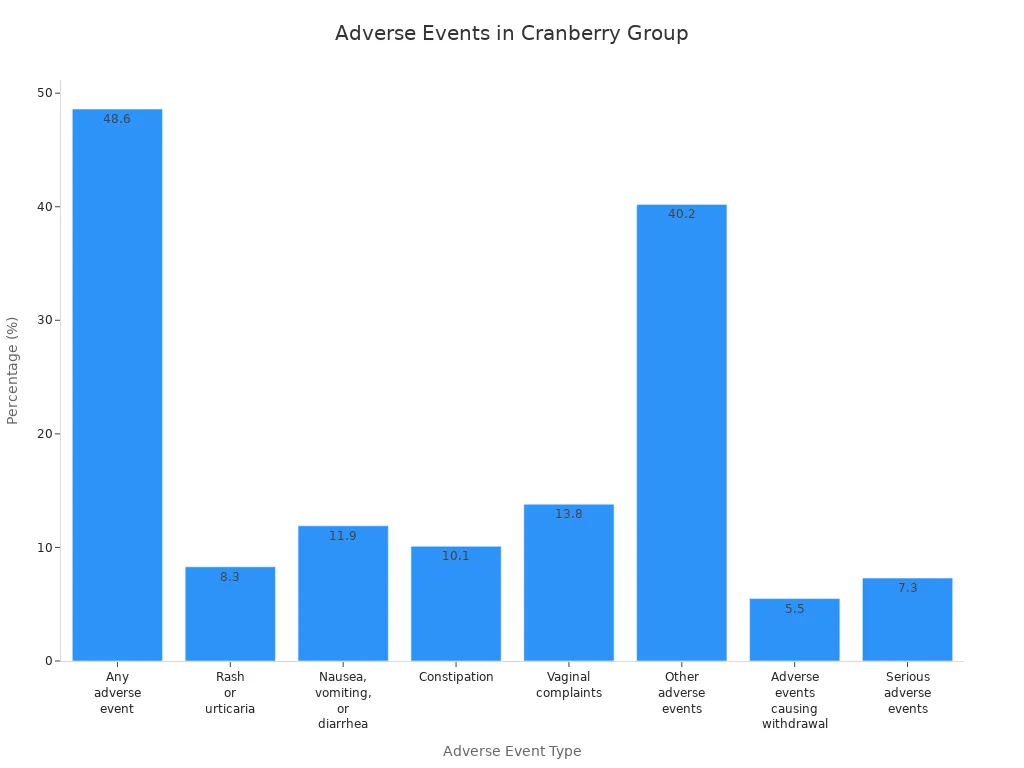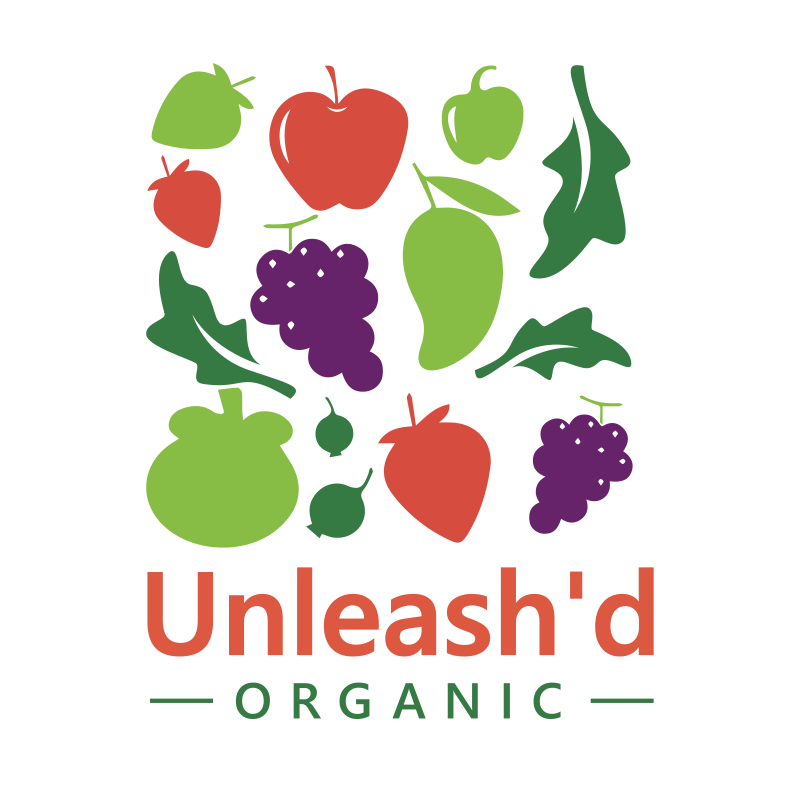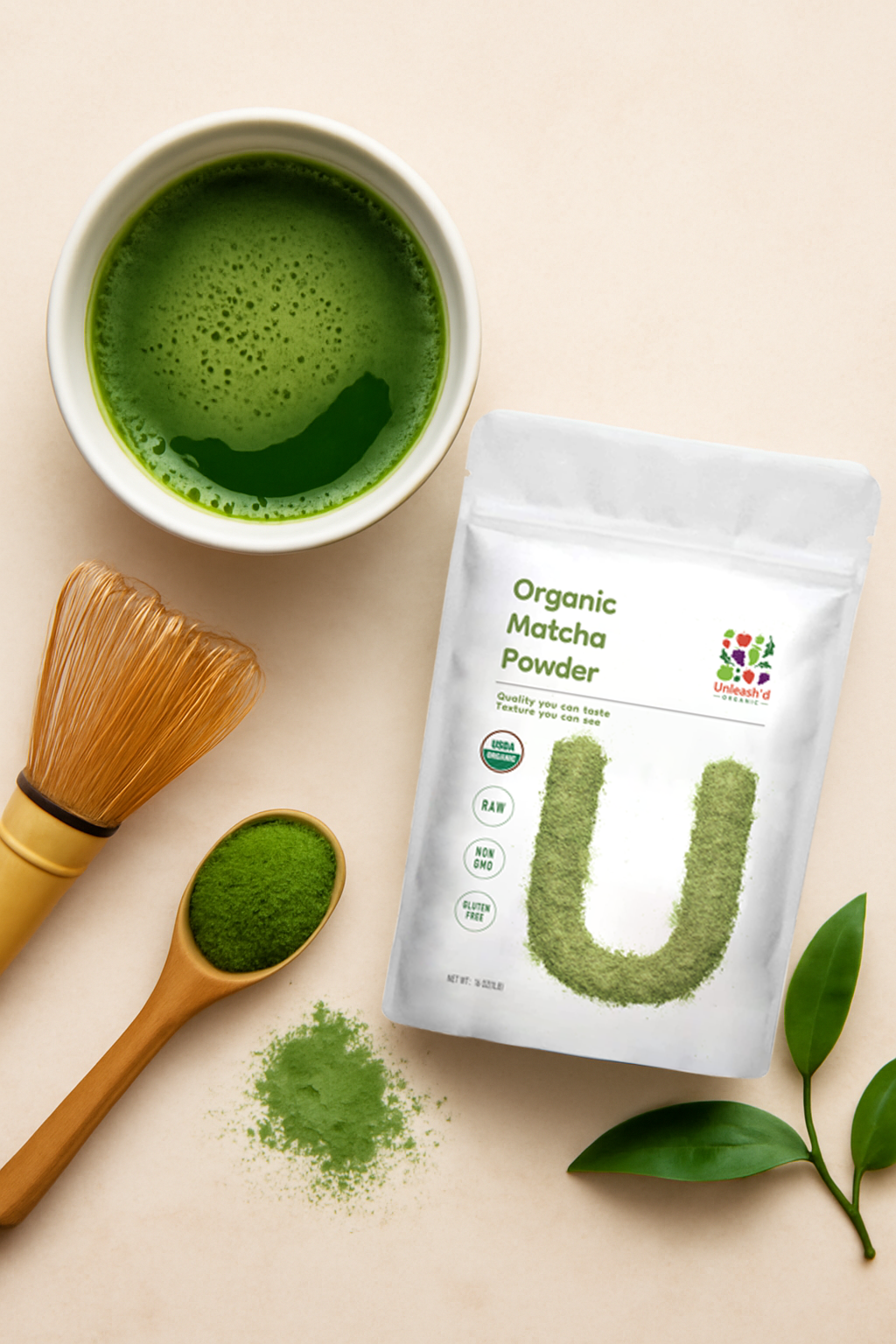
Recent research suggests cranberry juice powder may help lower blood pressure, especially for adults over 50 or those with high blood pressure. Studies indicate cranberry juice and cranberry extracts can reduce systolic blood pressure by about 3.6 mm Hg and diastolic blood pressure by up to 2 mm Hg.
-
Cranberry juice powder remains popular due to its support for urinary tract health and its antioxidant-rich profile.
-
Cranberries and cranberry juice continue to gain attention as natural options for promoting wellness.
-
Many people choose cranberries for both blood pressure and urinary tract benefits.
Key Takeaways
-
Cranberry juice powder may help lower blood pressure, especially in adults over 50 or those with high blood pressure, by about 3 mmHg.
-
The powder is rich in antioxidants and bioactive compounds that support heart health, reduce inflammation, and improve blood vessel function.
-
Regular intake of cranberry juice powder can also support urinary tract health by preventing bacteria from sticking to the bladder lining.
-
Use cranberry juice powder as part of a balanced diet and healthy lifestyle, and consult a healthcare provider before starting, especially if you have health conditions or take medications.
-
Most people tolerate cranberry juice powder well, but some may experience mild digestive issues; certain groups should avoid it or seek medical advice.
Cranberry Juice Powder Overview

What Is Cranberry Juice Powder?
Cranberry juice powder is a concentrated form of cranberries, created by drying and pulverizing the fruit to preserve its natural nutrients and flavors. This process results in a fine powder that delivers the essence of unsweetened cranberry juice in a convenient, shelf-stable format. Unleash'd Organic Cranberry Juice Powder stands out as an example of a high-quality product, made from 100% organic cranberries. It offers a rich source of antioxidants, vitamins, and minerals, supporting claims for urinary tract health, immune support, and overall wellness.
Manufacturers use advanced techniques to ensure the integrity and safety of cranberry juice powder:
-
Cranberries undergo drying and pulverization to retain nutrients and natural flavors.
-
Quality assurance includes polyphenol fingerprint analysis and DNA testing for authenticity.
-
Active compounds such as proanthocyanidins and total polyphenols are standardized.
-
Certifications like GMP and NSF International indicate strict quality standards.
-
Metal detectors and contaminant testing protect consumer safety.
People can easily add cranberry juice powder to their daily routines. Many choose to mix it into smoothies, stir it into water, or blend it with yogurt for a tart, refreshing boost.
|
Component Category |
Examples and Details |
|---|---|
|
Vitamins |
|
|
Minerals |
Potassium, Calcium, Magnesium, Iron, Manganese, Boron |
|
Fatty Acids |
Small amounts of Omega-3 and Omega-6 fatty acids |
|
Bioactive Compounds |
Phenolic acids, anthocyanins, flavones, flavonoids, proanthocyanidins |
|
Carbohydrates |
|
|
Fiber |
Minimal in juice powder; includes soluble and insoluble fiber |
|
Active Compounds |
Flavonol polyphenols (quercetin), organic acids |
Cranberry Juice Benefits
Cranberry juice benefits stem from the fruit’s unique nutritional profile. Cranberries contain high levels of antioxidants, including vitamin C, vitamin E, and a variety of polyphenols such as anthocyanins and proanthocyanidins. These antioxidants help neutralize free radicals, reducing oxidative stress and supporting immune health. Clinical studies show that cranberry juice powder can increase the activity of key immune cells and reduce the frequency of cold and flu symptoms.
Cranberries also provide essential minerals like potassium, calcium, and magnesium, which contribute to the health benefits of cranberry juice. The bioactive compounds in cranberries, especially proanthocyanidins, support urinary tract health by preventing harmful bacteria from adhering to the urinary lining. This makes cranberry juice powder a popular cranberry supplement for those seeking natural urinary tract support.
The health benefits of cranberry juice extend beyond urinary wellness. As a rich source of antioxidants, cranberries help protect cells and DNA from damage. The antioxidants in unsweetened cranberry juice and cranberry juice powder also support cardiovascular health and may help lower blood pressure. Many people choose cranberry juice powder for its versatility, adding it to drinks or foods to enjoy the full spectrum of cranberry juice benefits.
Tip: For maximum health benefits, select organic cranberry juice powder and incorporate it into a balanced diet.
Research on Lower Blood Pressure

Study Findings
Recent scientific research has explored whether cranberry juice powder can lower blood pressure, especially in people with high blood pressure or hypertension. Multiple meta-analyses and clinical trials have examined the effects of cranberry, cranberry juice, and cranberry juice powder on both systolic and diastolic blood pressure. The results show a modest but meaningful impact, particularly for those seeking to manage hypertension.
|
Meta-Analysis Year |
Effect on Systolic Blood Pressure (SBP) |
Effect on Diastolic Blood Pressure (DBP) |
Notes |
|---|---|---|---|
|
2020 |
Significant reduction by ~1.78 mmHg |
Included berries including cranberry juice; modest but significant effects |
|
|
2019 |
Significant reduction |
No significant change |
Cranberry juice showed SBP reduction only |
|
2021 |
No significant effect |
No significant effect |
No blood pressure changes found with cranberry consumption |
|
2022 (Review) |
Insufficient direct evidence |
Insufficient direct evidence |
Stronger evidence for indirect normalization in hypertensive subjects |
A 2012 clinical study found that regular cranberry juice consumption lowered both systolic and diastolic blood pressure by about 3 mmHg. This reduction, while small, can help shift individuals from pre-hypertension to normal ranges. Researchers recommend 2 to 3 cups of low-sugar cranberry juice daily for this effect.
When comparing cranberry juice powder to other fruit-based supplements, cranberry and cherry juice stand out as the most effective for lowering blood pressure. Cherry juice shows a slightly stronger effect on systolic blood pressure, but cranberry juice powder remains one of the top choices for those looking to reduce blood pressure naturally. Other fruit-based powders, such as blueberry or grape, do not show consistent cardiovascular benefits.
Note: The effects of cranberry juice powder on blood pressure appear more pronounced in adults over 50 and in those with high blood pressure. The evidence for diastolic blood pressure reduction is mixed, but some studies report significant improvements.
Clinical trials using cranberry juice powder at a dosage of 9 grams per day for one month in healthy middle-aged men showed minimal changes in systolic and diastolic blood pressure. However, these studies did find significant improvements in blood vessel function, which may contribute to long-term heart health. In women with metabolic syndrome, daily intake of 480 mL of low-calorie cranberry juice for eight weeks did not significantly lower blood pressure, but a trend toward systolic blood pressure reduction was observed.
How It Works
Scientists believe that cranberry juice powder may lower blood pressure through several mechanisms. Cranberries contain high levels of polyphenols and other bioactive compounds, which act as antioxidants and support cardiovascular health. These compounds help reduce inflammation, improve lipid metabolism, and enhance glucose homeostasis, all of which play a role in managing hypertension.
|
Mechanism |
Description |
|---|---|
|
Anti-inflammatory effects |
Phenolic compounds in cranberries reduce inflammation, lowering risk factors for hypertension |
|
Improved lipid metabolism |
Cranberry polyphenols help balance cholesterol and triglyceride levels |
|
Enhanced glucose homeostasis |
Better blood sugar control supports overall cardiovascular health |
|
Vascular function improvement |
Polyphenols improve blood vessel function and flow-mediated dilation |
|
Natural ACE inhibitor activity |
Certain cranberry compounds may act as a natural ace inhibitor, helping relax blood vessels |
A clinical trial involving adults who consumed low-calorie cranberry juice twice daily for eight weeks showed a significant reduction in diastolic blood pressure compared to placebo. Participants also experienced improvements in triglycerides, C-reactive protein, fasting glucose, and insulin resistance. These results suggest that cranberry juice powder supports heart health by targeting multiple risk factors.
Specific polyphenols in cranberries, such as quercetin-3-O-s-D-glucuronide and gamma-valerolactone sulfate, have been linked to improved vascular function. Improved flow-mediated dilation indicates healthier blood vessels, which can help lower blood pressure over time. While some studies do not show direct blood pressure lowering effects, they consistently report better vascular health and reduced inflammation.
Cranberry juice powder may also act as a natural ace inhibitor, a property that helps relax blood vessels and reduce blood pressure. This mechanism is similar to some prescription medications used to manage hypertension, but cranberry offers a natural alternative for those seeking plant-based options.
In summary, cranberry juice powder provides a modest but meaningful way to lower blood pressure, especially for adults with high blood pressure or those at risk for hypertension. Its unique combination of antioxidants, polyphenols, and natural ace inhibitor activity supports both blood pressure lowering and improved heart health.
Using Cranberry Juice Powder
Dosage and Tips
Selecting the right dosage of cranberry juice powder helps maximize its health benefits. Experts recommend the following daily amounts for general wellness and urinary tract support:
-
500 mg to 1,500 mg of dried cranberry powder per day supports overall health.
-
At least 500 mg of cranberry powder or 36 mg of proanthocyanidins daily helps prevent urinary tract infections.
-
Dosages up to 1,500 mg per day are safe for most people.
-
No specific dosage exists for blood pressure support, so individuals should consult a healthcare provider for guidance.
Nutritionists suggest several practical tips for incorporating cranberry into a daily lifestyle:
-
Choose products with a high concentration of proanthocyanidins (at least 25% or 36 mg per serving).
-
Avoid cranberry products with added fillers or extra ingredients.
-
Add cranberry powder to smoothies, yogurt, oatmeal, or salads for a nutrient boost.
-
Select unsweetened cranberry juice or powder to avoid excess sugar.
-
Use cranberry as a topping for leafy greens or whole grains.
Tip: Drinking cranberry juice or adding cranberry powder to meals works best as part of a balanced lifestyle that includes regular exercise and a healthy diet.
Who Should Use It
Cranberry juice powder offers the most benefit to certain groups. Regular intake may help lower blood pressure and reduce inflammation, especially in adults with elevated blood pressure or those at risk for heart disease. People seeking to improve cardiovascular health or support urinary tract wellness can consider this supplement as part of their routine.
However, some individuals should use caution or avoid cranberry products. The table below outlines key groups and considerations:
|
Group / Condition |
Caution or Contraindication |
|---|---|
|
Allergy to aspirin |
Avoid large quantities due to salicylic acid content |
|
History of kidney stones |
Avoid cranberry products because of high oxalate content |
|
Diabetes |
Avoid sweetened cranberry products; choose unsweetened options |
|
Pregnancy/Breastfeeding |
|
|
Children |
Safety as a supplement not well established |
|
Warfarin or certain medications |
Monitor for interactions; consult a healthcare provider |
People with these conditions should consult a healthcare professional before adding cranberry to their lifestyle. Regular use of cranberry juice powder fits best for adults aiming to support heart and urinary tract health as part of a healthy lifestyle.
Safety and Side Effects
Possible Risks
Cranberry juice powder is generally safe for most people when used as directed. However, some individuals may experience side effects, especially when consuming higher amounts. The most commonly reported side effects in clinical studies and consumer reports include:
-
Nausea
-
Vomiting
-
Diarrhea
Adverse reactions can occur, though most are mild and temporary. The following table summarizes the frequency of adverse events observed in a clinical trial group using cranberry products:
|
Adverse Event Type |
Cranberry Group (n=109) |
Percentage (%) |
|---|---|---|
|
Any adverse event |
53 |
48.6 |
|
Rash or urticaria |
9 |
8.3 |
|
Nausea, vomiting, or diarrhea |
13 |
11.9 |
|
Constipation |
11 |
10.1 |
|
Vaginal complaints |
15 |
13.8 |
|
Other adverse events (mostly rare) |
44 |
40.2 |
|
Adverse events causing withdrawal |
6 |
5.5 |
|
Serious adverse events (any) |
8 |
7.3 |

Most adverse events are mild, but a small percentage of users may experience more serious reactions, such as rash, headache, or joint pain. Individuals with a history of kidney stones, allergies to cranberries or aspirin, or those prone to digestive issues should avoid cranberry juice powder or consult a healthcare provider before use.
Note: Children, pregnant or breastfeeding women, and people with chronic health conditions should seek medical advice before starting any cranberry supplement.
Medication Interactions
Cranberry juice powder can interact with certain medications. The most notable interaction involves warfarin, a blood thinner. The table below outlines this interaction:
|
Medication |
Interaction Type |
Clinical Implications |
|---|---|---|
|
Warfarin |
Mild interaction |
Increased risk of bleeding; close monitoring |
Healthcare professionals also advise caution for individuals taking proton pump inhibitors or H2 blockers. Cranberry juice powder may affect the effectiveness of these medications, so monitoring and consultation with a doctor are recommended.
Tip: Always inform your healthcare provider about any supplements you use, especially if you take prescription medications or have underlying health conditions.
Cranberry Juice and UTIs
Urinary Tract Support
Cranberry juice and UTIs have a long-standing connection in clinical research. Scientists have studied cranberry products, including cranberry juice powder, for their ability to prevent urinary tract infections. Multiple randomized controlled trials show that cranberry capsules and juice can reduce UTI incidence, especially in women with recurrent infections. A recent six-month clinical trial found that daily supplementation with whole cranberry fruit powder lowered the risk of culture-confirmed UTIs by 65% in females with recurrent UTIs compared to placebo. This reduction extended to UTI-related symptoms, with fewer adverse urinary events reported in the cranberry powder group.
Researchers attribute these effects to unique compounds in cranberries, such as proanthocyanidins. These compounds block bacteria from adhering to bladder cells, reducing infection risk. The anti-adhesive activity of cranberry polyphenols and their metabolites prevents uropathogenic E. coli from colonizing the urinary tract. Ex vivo studies confirm that urine from individuals consuming cranberry powder inhibits bacterial adhesion. Cranberry also strengthens epithelial barriers and reduces inflammation, further supporting urinary tract health.
Studies show that cranberry juice powder offers advantages over cranberry juice. Powder formulations allow for better standardization of active ingredients, such as proanthocyanidins, which may improve effectiveness. Compliance rates are higher with powder due to better palatability and ease of use. Although results vary by population and product type, cranberry juice and UTIs remain closely linked in scientific literature.
Note: Most side effects from cranberry products are mild, such as gastrointestinal discomfort. No formal dosing regimen exists, but 400–500 mg daily appears effective for UTI prevention in adults.
Other Health Benefits
Cranberry juice powder provides additional health benefits beyond urinary tract support. Researchers have identified antioxidant effects, including reduced oxidative damage to proteins and lipids. Animal studies show that cranberry powder increases HDL-cholesterol and inhibits LDL oxidation, which may protect cardiovascular health. Literature reviews suggest cranberry polyphenols help lower blood pressure and reduce platelet aggregation.
|
Health Benefit Area |
Summary of Findings |
Study Type |
|---|---|---|
|
Antioxidant effects |
Decreased protein and lipid oxidation; improved serum markers |
Animal model, biochemical assays |
|
Cardiovascular protection |
Increased HDL, reduced LDL oxidation, lower blood pressure |
Animal studies, literature review |
|
Reduced biofilm formation on teeth and gums |
Emerging evidence |
|
|
Gastrointestinal health |
Possible reduction of Helicobacter pylori infection; modulation of gut microbiota |
Breakthrough study, emerging data |
Cranberry juice powder may also support oral hygiene by reducing biofilm formation on teeth and gums. Some studies indicate a potential role in lowering Helicobacter pylori infection in the gastrointestinal tract. Researchers recognize the importance of insoluble proanthocyanidins in these effects, but standardized testing methods remain necessary to fully understand the health benefits of cranberry juice.
Large-scale population studies have not yet confirmed broader health benefits of cranberry juice powder beyond urinary tract and blood pressure support. However, experimental data suggest favorable effects on glucose metabolism, oxidative stress, and endothelial function. Cranberries remain a valuable source of antioxidants and bioactive compounds, contributing to overall wellness.
Current research shows that cranberry juice powder may help lower blood pressure, especially in adults with high blood pressure or metabolic concerns. While studies highlight modest cardiovascular benefits, no medical organizations formally recommend cranberry for this purpose. Individuals should consult a healthcare provider before starting supplementation, particularly if they have kidney stones or take medications. Cranberry products offer additional advantages, such as improved cholesterol and reduced inflammation, but should complement—not replace—other healthy lifestyle choices.
FAQ
Can cranberry juice powder replace blood pressure medication?
Cranberry juice powder does not replace prescription blood pressure medication. Individuals should continue their prescribed treatment and consult a healthcare provider before making any changes to their regimen.
How quickly does cranberry juice powder affect blood pressure?
Most studies report modest changes in blood pressure after four to eight weeks of daily use. Results may vary based on age, health status, and dosage.
Is cranberry juice powder safe for daily use?
Cranberry juice powder is safe for most adults when used as directed. Some people may experience mild digestive discomfort. Those with kidney stones or on certain medications should seek medical advice.
Does cranberry juice powder contain added sugar?
High-quality cranberry juice powders, such as Unleash’d Organic, do not contain added sugar. Always check the ingredient label to confirm the absence of sweeteners or fillers.
Who should avoid cranberry juice powder?
Individuals with a history of kidney stones, allergies to cranberries, or those taking warfarin should avoid cranberry juice powder. Pregnant or breastfeeding women should consult a healthcare provider before use.


Leave a comment
This site is protected by hCaptcha and the hCaptcha Privacy Policy and Terms of Service apply.